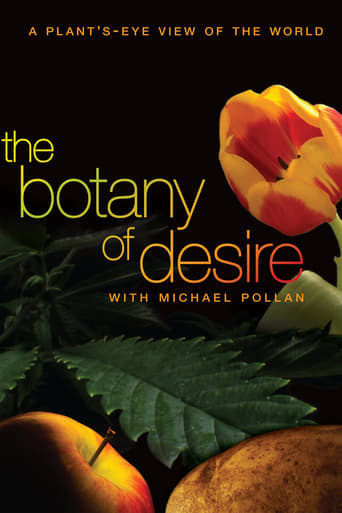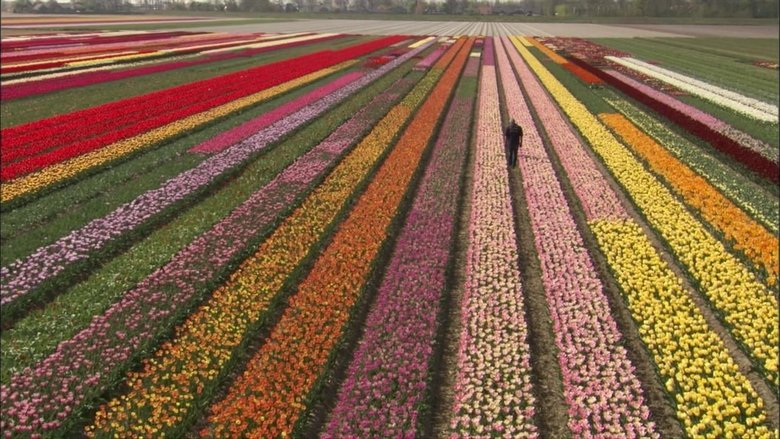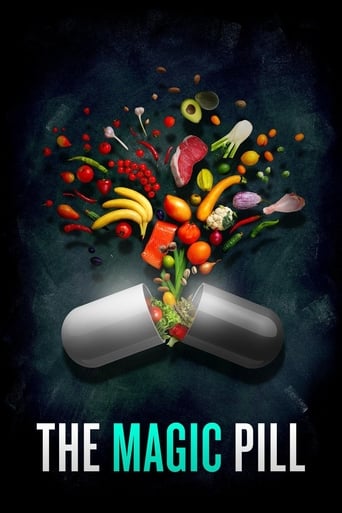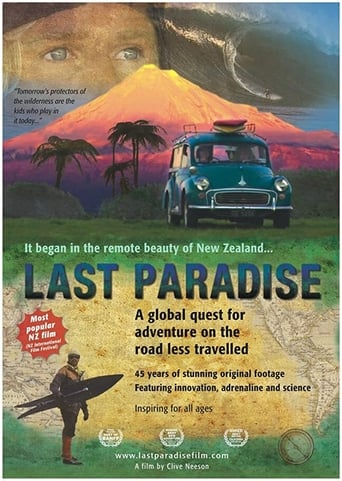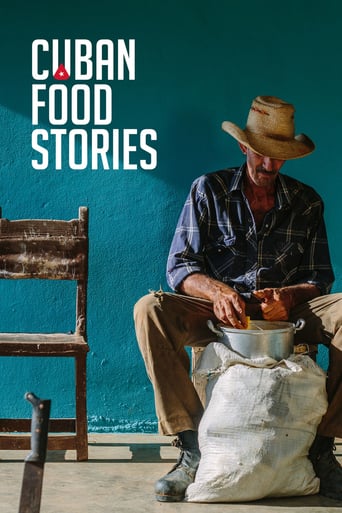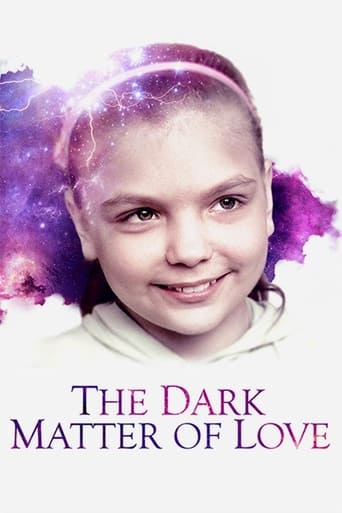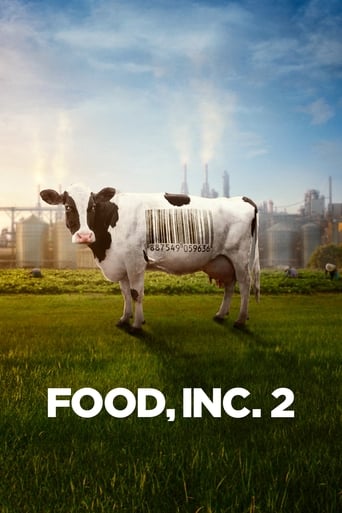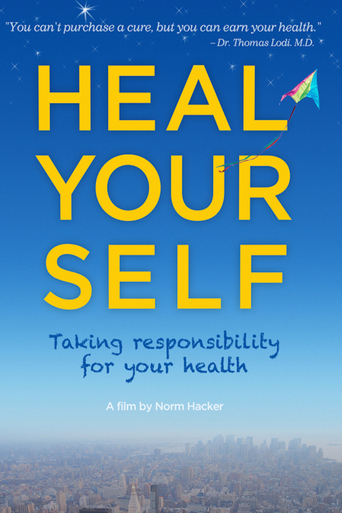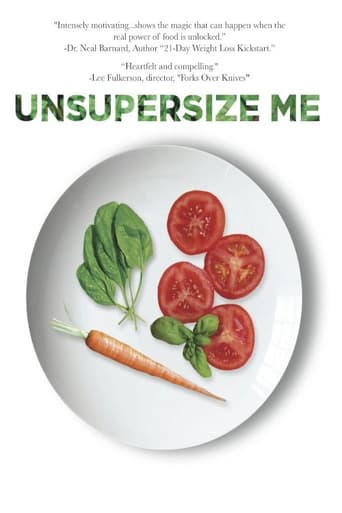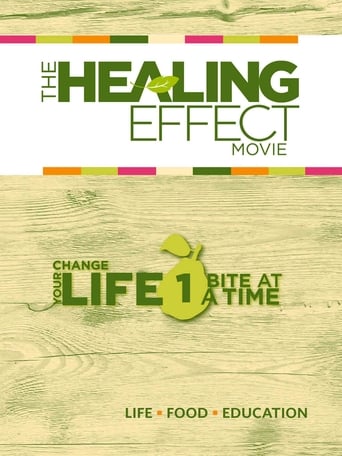The Botany of Desire (2009)
Featuring Michael Pollan and based on his best-selling book, this special takes viewers on an exploration of the human relationship with the plant world -- seen from the plants' point of view. Narrated by Frances McDormand, the program shows how four familiar species -- the apple, the tulip, marijuana and the potato -- evolved to satisfy our yearnings for sweetness, beauty, intoxication.
Watch Trailer
Cast


Similar titles
Reviews
Good start, but then it gets ruined
Good movie but grossly overrated
Don't listen to the Hype. It's awful
A Disappointing Continuation
Wow, pretty cool.I watched this on netflix and have not read the book.This movie takes a journey through the history of our world through a view you likely have not taken before.Although the focus switches from plant to plant (and even acknowledged throughout, such as the tulips in the background at the Amsterdam coffee shop), the concept is the same throughout, the plants' eye view of the world. They are mirrors to human nature, and have evolved around us, and in doing so, have had us evolve around them. If you don't like this theme, this movie is not for you.A bit uneven in parts but it is a compelling concept. That view of nature and humans' role in it is refreshing to see represented.
The Botany of Desire is a well made PBS documentary adaptation of Michael Pollan's book discussing humanity's interactions with four different plants-the apple, the potato, the tulip, and marijuana-over the ages. It is both highly informative and thought-provoking.The film itself is a useful introduction to Michael Pollan's ideas, particularly the idea of evolutionary deals between plants and humanity, in which a species of plant provides humans with benefits in exchange for human cultivation, which ensures survival. This concept is particularly useful for understanding Pollan's work, and figures in his other books such as The Omnivore's Dilemma.The ending of the film is especially essential viewing, as it discusses the problems raised by industrial agriculture and the issue of monocultures-the tendency to grow identical breeds of a plant, which could all be vulnerable to the same disease. This fits with his broader critique of industrial farming in The Omnivore's Dilemma, and is important for anyone concerned with the future of American food.
This is certainly one of the most intriguing, most interesting and most beautiful documentaries I have seen in some time. Not only the plants are gorgeously captured on film, also the director had a very good hand in choosing the people that he lets talk about "their" plant. When seeing this film, you learn to see apples, potatoes, cannabis and tulips in a completely different light, and you begin to understand the passion and commitment these farmers and growers feel for their plant.And then, the other point of view: The view from the plant's perspective. When seeing how plants adapted in their ingenious ways to attract us humans, you could wonder if plants, seen as a collective, really have no consciousness, as the author of the book and main interviewee Michael Pollan states twice. But that's another plus factor of this documentary: It does not dictate a certain viewpoint, it shows sometimes even contradicting views next to each other, to let the viewer come up with his own conclusions. Even the critical part about cannabis works. Critical, because this plant is the only one of the four, which is nowadays criminalized by institutions and UN resolutions. Simply showing what lead to the cannabis prohibition, first in the USA and later in the rest of the world, leaves much room for your own thoughts.But finally, in that cannabis part there is the only flaw I see in "The Botany of Desire". The masking behind leaves and (presumably) false hair is slightly derogating, but understandable, because of the present laws. But the film really misses to tell that the "intoxicating" cannabis a.k.a. Marijuana or "medical cannabis" is just one of two varieties of the same cannabis plant: Its common English name "hemp" is not mentioned even once in the movie (if you don't count the writing "Zamer Hanff" ("tame hemp") in old German letters on one picture), nor its potential and heavy importance for producing fibers until about the middle of the 20th century, as well as valuable plant oil, which have been replaced by plastic fibers, cotton, petroleum and other plant oils. Instead, cannabis is introduced as a "lowly weed", which just happens to produce THC. And with THC they made another error. It is not the only psychoactive compound of the potent cannabis plant. There are more than 60 substances in essential cannabis oil and THC is just the strongest of the psychoactive ones. Others have decisive influence to its effect. And some compounds are not psychoactive at all, but for example anti-inflammatory or anti-oxidant. All of this should have been mentioned in a few sentences, though it wasn't and that is why I am giving 8 and not 9 points.But, at the end, the full movie is highly recommendable for schools, universities, families, nature fans and just everybody who wants to know a little more about us and the world we live in.
I love documentaries, and for some reason wasn't interested in this one, I eventually decided to give it a shot, and WOW. I was absolutely sucked in within the first 2 minutes of the show and did not lose a spec of interest throughout. The show really put the emphasis on getting you to see things from the plants point of view, although equally valid in a symbiotic relationship is the human point of view. This documentary instills a sense of wonder about the world that I haven't felt sense I watched the planet earth series (the BBC version, the American narrator puts you to sleep). It is full of fantastic quotes on every scene, one of my favorites, yet a little silly is, "flowers are exquisitely useless." This show is the perfect mix of science, history, and beauty. If you like documentaries, this is one of the best, and whether you're interested in botany or not, this show will speak to you on a deep level and is a must see.P.S. I've been a huge IMDb fan for many years, I finally made an account just so that I could review this documentary, that is how much I enjoyed it.

